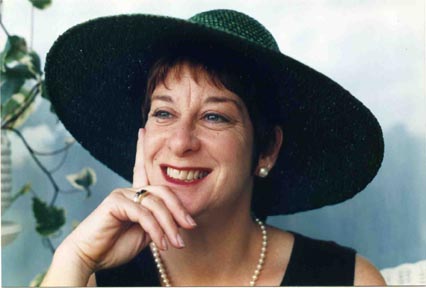
©2008 Susan Schaefer
Ode To April
Trickster month
begins with
a fool’s day,
ends with
the greatest passion play
of a cross on Calvary
or
the parting of the Red Sea.
Cruelest month?
when buds and babes
push up and out
and rain falls,
and breezes beckon,
and renewal calls.
Here,
in the Northern Hemisphere,
April brings
the hope of spring.
- © 2011 Susan Schaefer
Inaugurated by the Academy of American Poets in 1996, National Poetry Month is now held every April. It is a time when publishers, booksellers, literary organizations, libraries, schools and poets around the country band together to celebrate poetry and its vital place in American culture. Thousands of businesses and non-profit organizations participate through readings, festivals, book displays, workshops, and other events.
Our neighbors in Miami-Dade country are going all out this April with their O, Miami poetry festival. O, Miami is a countywide, month-long series of events and projects with the simple goal of every person in Miami-Dade County finding a poem. Mixing traditional readings with innovative poetry-in-public-places projects, the festival will weave poetry into the fabric of the city’s existing infrastructure and cultural life. Events will be conducted in multiple languages, sometimes simultaneously, often in collaboration with other cultural organizations. O, Miami culminates in a four-day series of readings from April 27-30, 2011 at the Frank Gehry-designed New World Symphony Hall on Miami Beach.
Of all things said about writers, perhaps the single greatest compliment would be that: “she or he writes like a poet.” Why? Because there is simply no other written form that is based chiefly upon the economy of language that distinguishes good from great writing. The language of a poem should be like an energy saving appliance: good for the ‘written’ environment.
Of course, there are plenty of bad poets and poems, but by its essential nature, a poem should be tightly constructed, using few but well chosen words to convey a powerful feeling or moment in time. A great poem should transport the reader to experience an intense or pleasurable emotion, like great music does, or being in love, or the sight of a lovely flower unfolding.
Many of us naturally assume that a poem must rhyme simply because from childhood we have been entertained with rhymed verse. Think of Mother Goose rhymes, like the childhood classic: “Jack and Jill went up the hill….” This type of poem is called “closed: it is subject to a fixed structure and pattern.” However, legitimate poetry can be “free verse, with no prescribed pattern or structure.”
Please take a minute to read a favorite poem. Try reading it aloud. Share it with a child, a friend, or an elder who might enjoy being read to. Attend a reading or buy a volume of poems. In these days of daunting economics and news, what could be better than simply messing about with a written verse?
